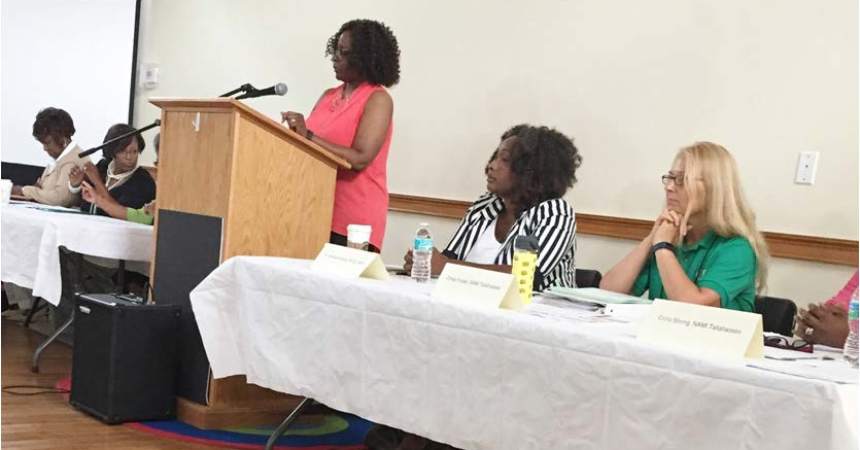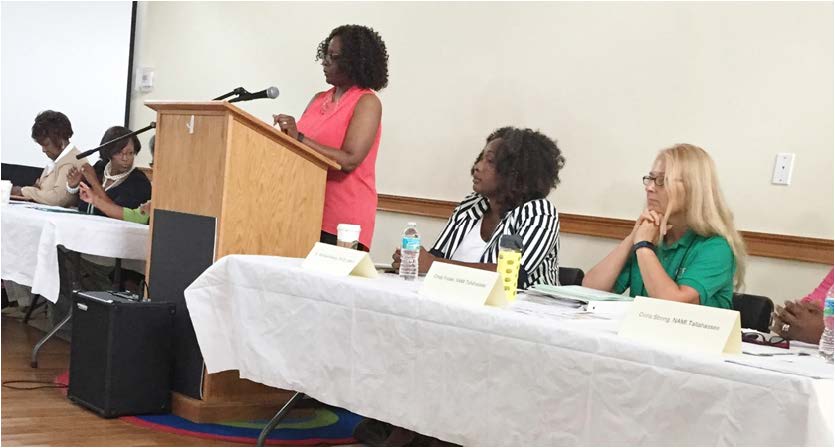
Mental Health Forum Addresses Stigmas in Minority Community
By Courtney Harris
Outlook Writer
Betty Jones was raised to believe that no matter what “family takes care of family.”
As a single mother of three, when her 14-year old daughter began to display signs of schizophrenia and autism she admits she did not want to acknowledge that something was different about her daughter, but rather treat her normally and raise her just the same.
“In the black community we all have folks in the family who may have some issues but they don’t go to therapy because that’s not what they were raised to do,” said Jones.
The National Alliance on Mental Illness (NAMI) wants to change this perception.
NAMI along with the Delta Kappa Omega chapter of Alpha Kappa Alpha Sorority Inc., held The Hope Starts With You Mental Health Forum on July 25.
As the discussion began, an overwhelming portion of the audience agreed that the Black community handles mental health issues differently.
Panelists discussed that mental health issues in the minority community is not uncommon nor is it always as drastic as suicidal thoughts.
Mental health issues can include anything from anxiety attacks to being easily angered or easily saddened but addressing your mental health, no matter how difficult, should be just as vital as any other health issue.
No matter the age, mental health should be prioritized. But as a child, if support is obtained early on, some negative side effects can be avoided later in life.
Early intervention is vital in children’s cases as it can hinder development of social skills and progress in education.
According to Carol Edwards, there are four million children in the U.S. suffering from a serious mental disorder.
As a social worker, Edwards encounters many children who tend to harbor emotions, in turn, they have emotional health issues that can easily go unnoticed.
When it comes to the social and emotional health of children and teens, it is important to “build resilience in children,” said Edwards.
Although for the parents your children are your priority. Cindy Foster, NAMI representative, says that you have to lead by example and take care of yourself first.
“We have to show them it’s ok to talk about mental illness. It’s okay to cry. It’s not easy, but it’s okay,” said Foster.
Along with taking care of yourself, comes self-evaluation. According to Alishea Rowley, Ph.D., you must take the time to research yourself and ask yourself what dysfunction you’re harboring.
Rowley explained that those who were raised in dysfunction know nothing else and they then can pass these traits on to their children.
Panelists agreed that the fear of having these conversations should end because there are generations being affected and “stopping this generational dysfunction starts with you asking questions in your own life,” said Rowley.







